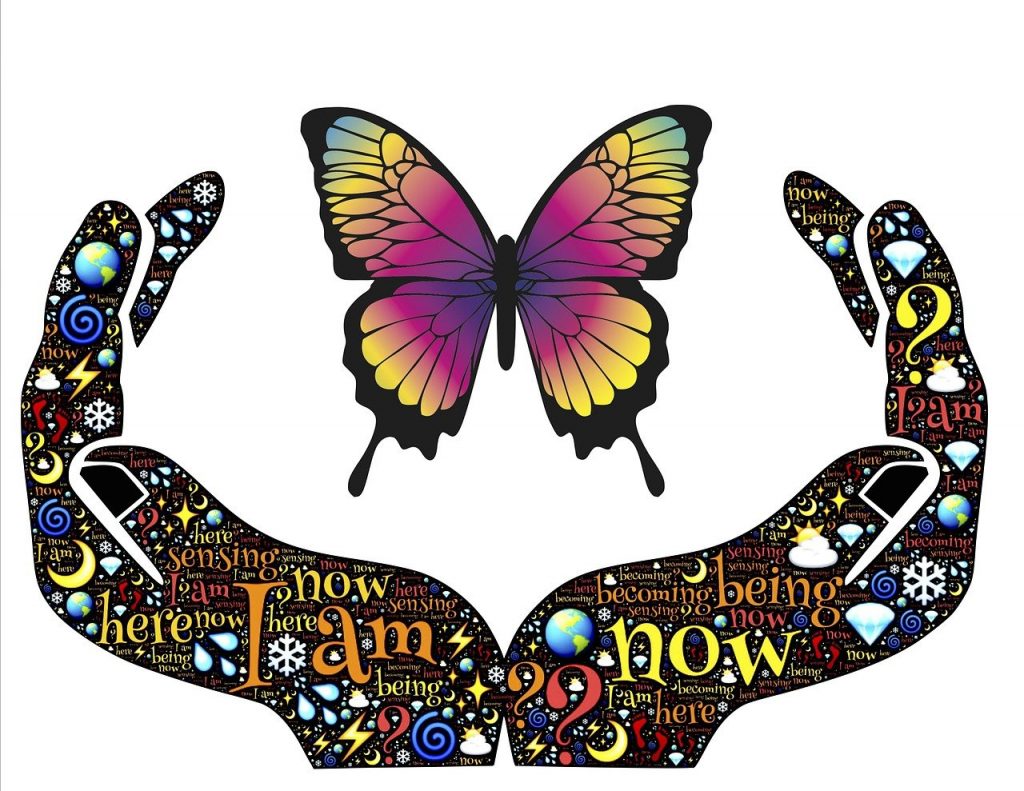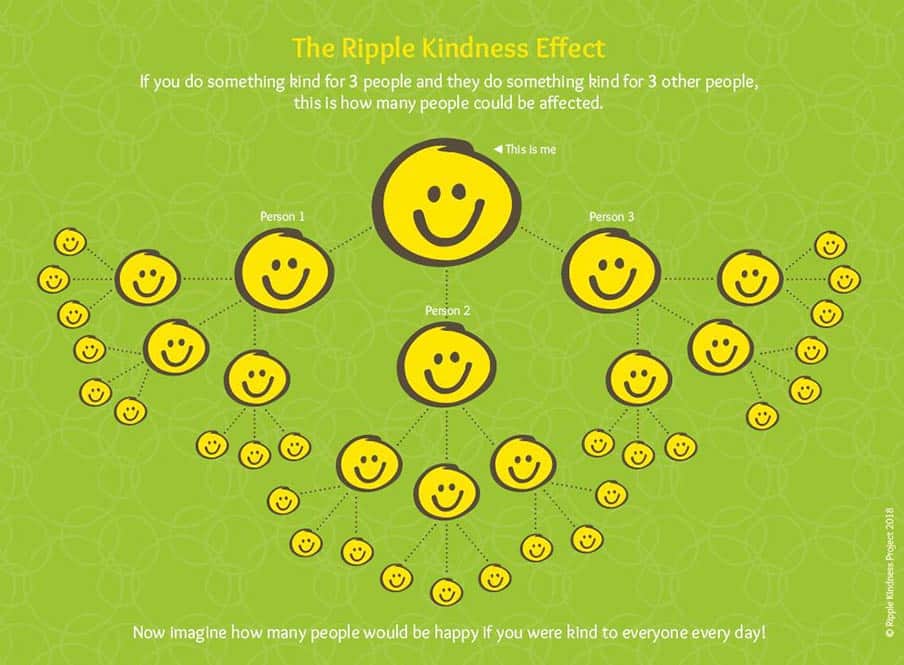In today’s fast-paced and often chaotic world, it can be easy to overlook the importance of gratitude and the positive impact it can have on our lives. Engaging in gratitude challenges and participating in creative and meaningful thankfulness activities can help us cultivate a sense of appreciation for the small things and foster a greater sense of happiness and fulfillment. These challenges encourage us to actively seek out moments of gratitude, whether it’s through daily journaling, expressing gratitude to others, or finding beauty in the world around us. By incorporating these practices into our daily lives, we can enhance our overall well-being and create a more positive and harmonious relationship with ourselves and others. So, why not embark on a gratitude challenge today and start reaping the benefits of a grateful mindset?

This image is property of pixabay.com.
Introduction
Welcome to the world of gratitude challenges, where expressing thankfulness becomes a transformative practice that can enhance your well-being and relationships. Gratitude is more than just a polite gesture; it is a profound state of appreciation that can positively impact your life. In this article, we will explore the definition of gratitude, why it is important, and the effects it has on your overall well-being. We will also dive into the various benefits of engaging in gratitude challenges and explore different types of challenges you can incorporate into your life. So get ready to discover the power of gratitude and embark on a journey towards personal growth and happiness.
Understanding Gratitude
Definition of gratitude
Gratitude is a powerful and positive emotion that arises when we express appreciation for the good things in our lives. It involves recognizing the kindness, generosity, and positive actions of others. Gratitude is not only about saying “thank you,” but about truly feeling and acknowledging the blessings and positive experiences we have.
Why gratitude is important
Gratitude is important because it shifts our focus from what is lacking in our lives to what we already have. It allows us to cultivate a mindset of abundance and contentment, rather than dwelling on negativity and scarcity. Practicing gratitude regularly can rewire our brains to notice the positive aspects of life and foster a sense of happiness and fulfillment.
Effects of gratitude on well-being
Research has shown that practicing gratitude can have a multitude of positive effects on our well-being. It has been linked to increased happiness, lower levels of depression, improved sleep quality, and enhanced self-esteem. Gratitude also strengthens our relationships, boosts our immune system, and reduces stress and anxiety. By incorporating gratitude into our daily lives, we can experience a profound shift in our overall well-being and outlook on life.

This image is property of pixabay.com.
Benefits of Engaging in Gratitude Challenges
Engaging in gratitude challenges can amplify the positive effects of gratitude and propel us towards personal growth and happiness. Let’s explore some of the main benefits of participating in these challenges.
Enhanced positive emotions
Gratitude challenges invite us to actively seek out and focus on the positive aspects of our lives. By consciously cultivating gratitude, we can enhance positive emotions such as joy, contentment, and love. This shift in mindset allows us to appreciate the present moment and find joy in even the smallest of things.
Improved physical health
Practicing gratitude has been linked to improved physical health. Research suggests that grateful individuals have lower levels of stress hormones, reduced inflammation, and better immune function. By engaging in gratitude challenges, we can potentially reap the physical benefits of reduced stress and improved overall health.
Strengthened relationships
When we express gratitude towards others, it strengthens our relationships and deepens our connections. Gratitude challenges often involve reaching out to loved ones, friends, or even strangers, and acknowledging their positive impact in our lives. This act of gratitude not only benefits the relationship itself but also brings immense joy and fulfillment to both parties involved.
Increased resilience
Gratitude challenges can help us develop resilience and cope with challenging times. When we actively seek out and focus on the positive aspects of our lives, it becomes easier to find strength and perspective during difficult situations. Gratitude strengthens our psychological resilience and can help us bounce back from adversity with more grace and optimism.
Reduced stress and anxiety
Practicing gratitude has been shown to reduce stress and anxiety levels. When we are grateful, we shift our focus from worrying about what we don’t have to appreciating what we do have. This shift in mindset calms our nervous system and brings about a sense of calm and peace. Engaging in gratitude challenges provides us with a structured way to cultivate gratitude and alleviate stress and anxiety in our daily lives.
Types of Gratitude Challenges
Now that we understand the numerous benefits of engaging in gratitude challenges, let’s explore some of the different types of challenges you can incorporate into your life. These challenges will help you deepen your gratitude practice and experience transformative effects.
Gratitude journaling
One popular gratitude challenge is keeping a gratitude journal. This involves regularly writing down things you are grateful for, such as moments of joy, acts of kindness, or things that bring you comfort. By making an effort to reflect on and document these positive experiences, you can enhance your overall gratitude and well-being.
Gratitude letters
Another powerful gratitude challenge is writing heartfelt gratitude letters to people who have positively impacted your life. These letters express your gratitude, appreciation, and love towards them. The act of writing and sending these letters can be incredibly transformative, both for you and the recipients of your gratitude.
Random acts of kindness
Engaging in random acts of kindness is a gratitude challenge that involves performing small acts of kindness for others with no expectation of receiving anything in return. These acts can range from simple gestures like holding the door for someone to more elaborate acts like volunteering your time or resources. By spreading kindness, you not only express gratitude but also create a ripple effect of positivity in the world.
Gratitude jar
A gratitude jar is a physical reminder of the things you are grateful for. It involves writing down moments of gratitude on small pieces of paper and storing them in a jar. Over time, this jar becomes a collection of positive moments and serves as a visual representation of your gratitude practice. Reflecting on the jar can bring a sense of joy and appreciation for the abundance in your life.
Gratitude meditation
Gratitude meditation is a practice that involves focusing your attention on the things you are grateful for. It often begins with deep relaxation and breathing exercises, followed by a guided meditation that helps you cultivate a sense of gratitude towards various aspects of your life. Gratitude meditation allows you to fully immerse yourself in the present moment and experience profound feelings of appreciation.

This image is property of pixabay.com.
Gratitude Journaling
How to start a gratitude journal
Starting a gratitude journal is simple and can be done with just a pen and a notebook. Begin by setting aside a few minutes each day to reflect on the positive aspects of your life. Write down three to five things you are grateful for and why you appreciate them. It could be something as small as a delicious cup of coffee in the morning or as significant as the support of a loved one.
Finding time for journaling
Finding time for gratitude journaling can be as easy as incorporating it into your daily routine. You may choose to journal in the morning to set a positive tone for the day or in the evening to reflect on the day’s blessings. Experiment with different times and see what works best for you. The key is to make it a consistent practice.
Tips for effective gratitude journaling
To make your gratitude journaling practice more effective, try the following tips:
-
Be specific: Instead of simply writing “I’m grateful for my family,” go into detail about why you are grateful for each family member. This helps you fully immerse yourself in the experience of gratitude.
-
Mix it up: Challenge yourself to find new things to be grateful for each day. This keeps your practice fresh and encourages you to look for gratitude in different areas of your life.
-
Reflect on challenges: Don’t shy away from expressing gratitude for the lessons learned from difficult situations. Reflecting on challenges and finding gratitude within them can foster personal growth and resilience.
Ideas for gratitude prompts
If you find yourself struggling to come up with things to write in your gratitude journal, here are some prompts to get you started:
- One thing that made you smile today
- Someone who showed you kindness
- A challenging situation you overcame
- Something in nature that you found beautiful
- A skill or talent you appreciate in yourself
Remember, the goal is to find something unique and meaningful to be grateful for each day. Let your gratitude journal be a source of inspiration and a reminder of the abundance of blessings in your life.
Gratitude Letters
Writing a heartfelt gratitude letter
Writing a gratitude letter is a powerful way to express your appreciation for the people who have positively impacted your life. Start by selecting a person you would like to write to and reflect on the specific ways they have made a difference. Write from the heart, expressing your gratitude in a sincere and genuine manner. Be specific about the actions, qualities, or support that you are grateful for.
Choosing recipients for gratitude letters
You have the freedom to choose anyone as a recipient of your gratitude letter, whether it be a family member, friend, coworker, or even a stranger who has touched your life in some way. Consider those who have made a profound impact on your life and deserve to be acknowledged for their kindness and support.
The impact of sending gratitude letters
Sending gratitude letters not only brings happiness and fulfillment to the recipients but also has a profound impact on your own well-being. It allows you to experience the joy of appreciating the positive influences in your life and strengthens your relationships through this powerful act of gratitude.
Examples of gratitude letters
Here are two examples of gratitude letters:
Dear Mom,
I want to take a moment to express my deep gratitude for all that you do for me. Your love, encouragement, and unwavering support have been the foundation of my life. Whenever I faced challenges, you were always there, guiding me with your wisdom and reminding me of my strength. Your nurturing and selfless nature have taught me the true meaning of unconditional love. I am forever grateful for your presence in my life and I cherish the countless memories we have created together. Thank you for being the extraordinary mother that you are.
With love and gratitude, [Your Name]
Dear Mr. Johnson,
I wanted to take a moment to express my sincere gratitude for your mentorship and guidance throughout my career. Your wisdom, expertise, and unwavering belief in my potential have transformed my professional journey. Your willingness to share your knowledge and provide constructive feedback has been instrumental in my growth and development. I am continuously inspired by your passion and dedication to your work, and I feel incredibly fortunate to have you as my mentor. Thank you for being a guiding light in my career.
With deep appreciation, [Your Name]
Random Acts of Kindness
What are random acts of kindness
Random acts of kindness are selfless acts performed without any expectation of reciprocation. They are small gestures of kindness that can brighten someone’s day and create a ripple effect of positivity. These acts can be as simple as holding the door for someone, paying for someone’s coffee, or leaving a kind note for a stranger.
Ideas for creative random acts of kindness
If you need inspiration for creative random acts of kindness, here are some ideas:
- Leave a bouquet of flowers on a neighbor’s doorstep.
- Write positive affirmations on post-it notes and leave them in public places for others to find.
- Offer to babysit for a friend or family member who could use a break.
- Volunteer at a local charity or community organization.
- Send a care package to a member of the military or someone going through a difficult time.
Remember that random acts of kindness don’t have to be grand or extravagant. Even the smallest acts, when done with genuine kindness, can have a profound impact on someone’s day.
Spreading gratitude in your community
Engaging in random acts of kindness not only spreads positivity but also fosters a sense of community. By actively seeking out opportunities to help others, you contribute to a culture of kindness and gratitude within your community. This creates a supportive and uplifting environment for everyone involved.
The ripple effect of kindness
Random acts of kindness have a ripple effect, meaning that one act of kindness can inspire others to do the same. When you perform a kind gesture, it not only brightens someone’s day but also encourages them to pay it forward. This creates a chain reaction of kindness that spreads throughout your community and beyond.
Gratitude Jar
How to create a gratitude jar
Creating a gratitude jar is a simple and meaningful way to cultivate gratitude in your daily life. Here’s how you can create your own gratitude jar:
-
Find a jar or container that you resonate with. It could be a mason jar, a decorative box, or any other container that brings you joy.
-
Decorate your jar if you wish. You can use paint, ribbons, or stickers to personalize it and make it visually appealing.
-
Place your gratitude jar in a prominent location where you will see it every day. This serves as a reminder to practice gratitude and record moments of appreciation.
Recording moments of gratitude
Every day, take a moment to reflect on the positive experiences or blessings in your life. Write them down on small pieces of paper and fold them up before placing them in your gratitude jar. These moments can be big or small, from achievements and milestones to simple joys and acts of kindness you have witnessed or experienced.
Reflecting on gratitude over time
As you continue to add moments of gratitude to your jar, it becomes a visual representation of all the blessings in your life. Set aside time periodically to empty the jar and reflect on the moments of gratitude you have accumulated. This reflection can be a powerful exercise in appreciating the abundance in your life and finding joy in the everyday.
Involving others in the gratitude jar
To promote gratitude within your family or community, invite others to participate in the gratitude jar. Encourage them to add their moments of gratitude to the jar and share in the collective celebration of appreciation. This creates a sense of connection and fosters a culture of gratitude among those involved.
Gratitude Meditation
Introduction to gratitude meditation
Gratitude meditation is a practice that combines meditation techniques with a focus on cultivating gratitude. It involves directing your attention to the things you are grateful for and allowing yourself to fully immerse in the feelings of appreciation and joy. Gratitude meditation can be a powerful tool to deepen your gratitude practice and experience the transformative effects of gratitude.
Steps to practice gratitude meditation
Here are some steps to help you practice gratitude meditation:
- Find a quiet and comfortable space where you can sit or lie down without distractions.
- Close your eyes and take a few deep breaths to relax your body and mind.
- Begin by bringing your attention to your breath, allowing it to anchor you in the present moment.
- Start by reflecting on something specific that you are grateful for. It could be a person, an experience, or even a quality within yourself.
- As you focus on this object of gratitude, allow yourself to fully experience the feelings of appreciation and joy.
- As thoughts arise, gently acknowledge them and let them go, returning your attention to the gratitude at hand.
- Continue to cultivate gratitude by expanding your focus to other elements of your life that you are grateful for.
- Stay in this meditative state for as long as feels comfortable, allowing yourself to fully embrace the feelings of gratitude.
- When you are ready to end your practice, take a few deep breaths and slowly open your eyes, carrying the sense of gratitude with you throughout your day.
Benefits of integrating meditation into gratitude practice
Integrating meditation into your gratitude practice can amplify the benefits of both practices. Meditation allows you to quiet the mind, reduce stress, and deepen your sense of presence. When combined with gratitude, it creates a powerful synergy that enhances your overall well-being, clarity, and appreciation for life.
Guided gratitude meditation resources
If you are new to meditation or prefer guidance during your gratitude practice, there are many resources available to help you get started. You can find guided gratitude meditations online, on meditation apps, or even engage in group meditation sessions focused on gratitude. These resources provide a structured framework to enhance your meditation practice and cultivate gratitude.
Conclusion
Congratulations! You have now journeyed through the world of gratitude challenges and explored various ways to incorporate thankfulness into your life. By understanding the power of gratitude, engaging in different challenges, and practicing gratitude journaling, writing gratitude letters, performing random acts of kindness, keeping a gratitude jar, and cultivating gratitude meditation, you have equipped yourself with the tools to enhance your well-being and deepen your connections with others. Remember, gratitude is a transformative practice that can bring immense joy, contentment, and fulfillment to your life. So go ahead, unleash the power of gratitude within you, and embrace the possibilities that lie ahead.


